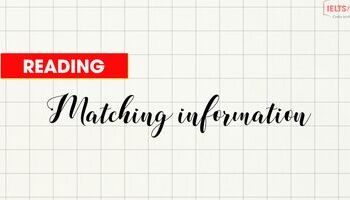Trong bài thi Speaking theo chủ đề Communication sẽ xoay quanh các câu hỏi về vai trò trong giao tiếp, công nghệ cho đến những cảm xúc...Bạn cùng tìm hiểu một số câu hỏi theo chủ đề này ở đây nhé.
Speaking part 1 sample
Do you prefer to speak to people by phone or by writing emails?
It depends on the situation. I use email and text messages to communicate with friends, but my parents prefer it if I phone them.
Do you ever write letters by hand? (Why / Why not?)
No, I don't write letters by hand because it's so much easier to send an email that will arrive immediately.
How do you usually keep in touch with members of your family?
I mostly keep in touch with my family by phone, and I've started using the Internet to make video calls. I also try to visit members of my family in person as often as I can.
Is there anything you dislike about mobile phones?
Well, I don't like listening to other people's conversations in public places, and I don't like it when someone's phone rings in the cinema or during a lesson.
Từ IELTS Simon
Mở rộng với chủ đề: Keeping in contact with people
How do you usually contact your friends? [Why?]
Bạn thường liên lạc với bạn của mình bằng cách nào? [Tại sao?]
Đây là một câu hỏi khá đơn giản và dễ mở rộng. Chúng ta chỉ cần đưa ra phương tiện liên lạc thường được sử dụng nhất, thường là điện thoại, hoặc đơn giản là qua mạng xã hội. Sau đó bạn có thể đưa ra lí do bằng cách giải thích tại sao phương tiện này tiện dụng nhất, hoặc giải thích rằng những phương khác không tối ưu bằng.
CÂU TRẢ LỜI MẪU 1:
Most of time, I contact my friends by making phone calls to them, and to me it is the best way for communication. I prefer to listen to their voice and tell them something that has happened. I also send short messages to them because maybe they are in the middle of a meeting or a class.
CÂU TRẢ LỜI MẪU 2:
I usually contact them using my cell phone. By using this I can contact them anywhere. If they do not answer I can always leave a voicemail and they can get back to me later. Sometimes I use instant messenger because it allows me to see when my friends are available and to talk to many people at the same time.
Từ vựng nổi bật:
- make phone calls gọi điện thoại
- instant (a) ngay tức khắc, liền
- allow (v) cho phép
Do you prefer to contact different people in different ways? [Why?]
Bạn có thích liên lạc với nhiều người khác nhau bằng nhiều cách khác nhau không? [Tại sao?]
Câu trả lời có thể được đưa ra bằng cách nêu lên sự tiện lợi khi có nhiều phương tiện khác nhau để liên lạc với nhiều người.
CÂU TRẢ LỜI MẪU 1:
Yes, I think so. If my friends are in another city, I prefer to chat with them online, as it saves money. When I want to communicate with my parents, I will call them as they don’t chat on the internet. Sometimes I write to some of my friends because we want to be special.
CÂU TRẢ LỜI MẪU 2:
Yes, I usually can use e-mail or instant messenger to contact my friends. For adults I usually write letters or call on the telephone. This is because many older people are unfamiliar with new technology. Also at work I would tend to use e-mail more because it allows messages to be saved as well as transfer pertinent data.
Từ vựng nổi bật:
- save (v) tiết kiệm
- to be unfamiliar with sth không quen với điều gì đó
- transfer (v) chuyển, dời
Do you find it easy to keep in contact with friends and family? [Why/Why not?]
Bạn có thấy việc giữ liên lạc với bạn bè và gia đình là dễ dàng không? [Tại sao?]
CÂU TRẢ LỜI MẪU 1:
I find it easy to keep in touch with my friends because there are many different modes of communication available. Also I find it easy to stay in touch with them because we have many similar issues we like to talk about and we contact each other more often because of this. I do not find it as easy to stay in touch with my family because of the generation gap. While I love them I find less need to call for frequent discussion. I usually just contact them once a week.
CÂU TRẢ LỜI MẪU 2:
I guess I have no problems keeping in touch with them especially when we conduct the daily conversation. I think I am good at communication. They can understand what I want to say. But sometimes, I have to be careful of what I say when I stay with my parents, and I think we have a generation gap. Their ideas to some extent are old-fashioned.
Từ vựng nổi bật:
- keep in touch with giữ liên lạc với ai đó
- available (a) có sẵn
- generation gap sự khác biệt giữa các thế hệ
- conduct a conversation thực hiện một đoạn đối thoại, nói chuyện
In your country, did people in the past keep in contact in the same ways as they do today? [Why/Why not?]
Ở quốc gia của bạn, ngày xưa mọi người có giữ liên lạc theo những cách thức giống với bây giờ không? [Tại sao?]
Thông thường thì câu trả lời sẽ là không, lí do là bởi thế giới hiện đại ngày nay đã tạo cơ hội để mọi người liên lạc với nhau dễ dàng hơn. Tuy nhiên bên cạnh đó vẫn còn những cách liên lạc vẫn được sử dụng mà chúng ta có thể nêu ra.
CÂU TRẢ LỜI MẪU 1:
Well, people contacted each other in different ways in the past. They paid a visit to their friends’ home, but now it is rarely the case. People also wrote letters to each other, and it would take a long time for the letters to reach the receivers. Several decades ago, people sent telegraphs to each other when there was something urgent. These methods are really out of date. People prefer emails, online chatting and text-messages better.
CÂU TRẢ LỜI MẪU 2:
People have definitely changed the ways they stay in contact. While they used to write letters that took days to arrive at their destination, now people send e-mails which arrive instantly. Even phones have changed. People used to have land lines in their homes but now this is not necessary because people carry cell phones with them all the time.
Từ vựng nổi bật:
- rarely (adv) hiếm khi
- urgent (a) khẩn cấp
- to stay in contact giữ liên lạc

Speaking Part 2 Sample
Part 2: Describe an interesting speech you heard recently.
You should say:
When you heard it
Where you heard
What it was about
And explain why you think it was interesting
Sample:
I always have a soft spot for a novel called “On Earth we are briefly gorgeous”. It is a masterpiece that captivated readers around the world with a redemptive power of storytelling, lyrical and hauntingly beautiful writing.
The author, Ocean Vuong, who is renowned for his literary genius, went on a promotional tour to deliver his insights about the novel.
The moment I knew the embarkment of this event, I immediately sought for a way to get into the writer’s promo tour. Fortune smiled upon me when I finally received an invitation to attend one of the stops on the tour in Hanoi. I was over to the moon as I got a chance to actually meet the mind behind all the words that touched my heart in person. The event took place in an auditorium full of people, buzzing with anticipation. Ocean got on the stage and had the audience hooked right from the start. With his gentle voice and charming humor, he delved into the intricate layers of the novel, revealing the underlying messages that resonated with the audience.
His words painted vivid images, bringing the recollection of his childhood to life and evoking a variety of emotions within the spectators. As I listened attentively, I actually felt a profound connection and sympathy with the writer’s vision. At the end of the event, Ocean even read to the audience an extract from his own book. I still remember vividly the heart-melting feeling when he read the novel’s quote.
All in all, for me, it was an eye-opening experience to witness firsthand the brilliance and creativity that had birthed this literary masterpiece.

Speaking part 3 sample
Which is better, being a communicator or listener?
I strongly believe both are important skills in effective communication. Mastering communication skills involves expressing thoughts and ideas clearly, persuasively, and with empathy. On the other hand, being a good listener involves actively paying attention, understanding, and responding to others' perspectives and needs. Both roles are essential for effective communication and building strong relationships.
What personal qualities does a good communicator need to have?
I think there are several criteria to determine an effective communicator. These include being a good listener, being empathetic and understanding, having clarity in their communication, being adaptable to different communication styles, being open-minded to different perspectives, and being able to convey their thoughts and ideas effectively. On top of that, good communicators also possess strong interpersonal skills, such as being able to build rapport, engage others, and resolve conflicts. Lastly, they are also aware of non-verbal communication cues and can use them effectively in their interactions.
Does technological development have a negative impact on communication among people?
It is common knowledge that technological development can pose challenges in face-to-face communication and interpersonal relationships. To be specific, over-reliance on technology can hinder genuine human connection, lead to misinterpretation of messages, and contribute to a sense of disconnection or isolation. It is important for individuals to find a balance between digital communication and in-person interactions.
What kinds of people often give speeches?
From what I have seen, there can be various types of people who deliver speeches from time to time, depending on the context and setting. Politicians and government officials often give speeches to address the public and share their policies or ideas. Business leaders may address conference attendees to present their company's vision or promote their products. Keynote speakers are invited to events or conferences to share their expertise and inspire the audience. Additionally, educators, motivational speakers, and public figures may also frequently give speeches to inform, entertain, or influence their audience.
Trên đây là một số câu trả lời mẫu và cách triển khai ý cho các câu Speaking topic Communication - Giao tiếp, bạn lưu về luyện tập nhé.
Xem thêm các chủ đề hay khác:
IELTS Speaking topic Memory - Vocab + Sample Answer
IELTS Speaking topic Childhood - Vocabulary + Sample Answer





